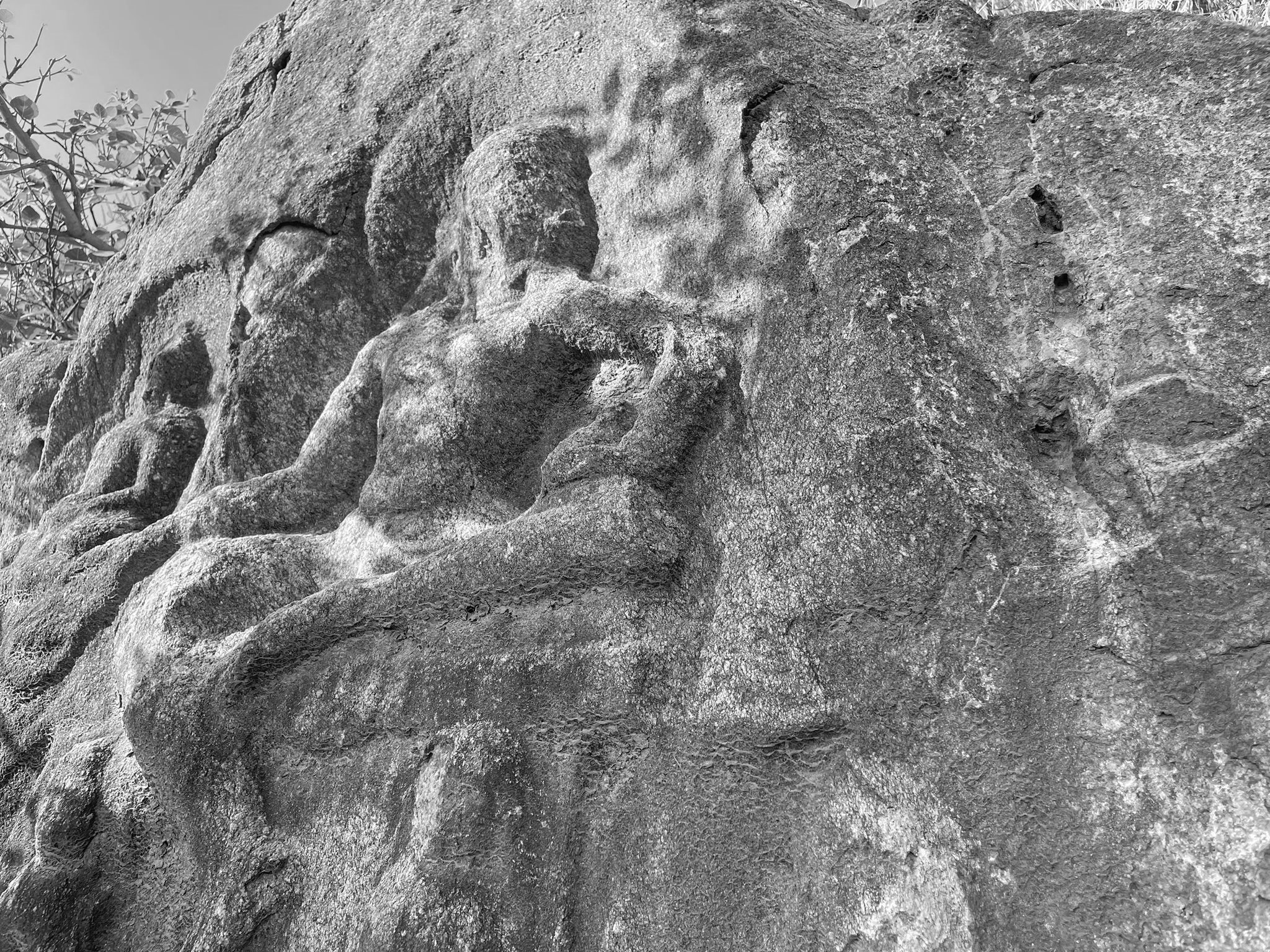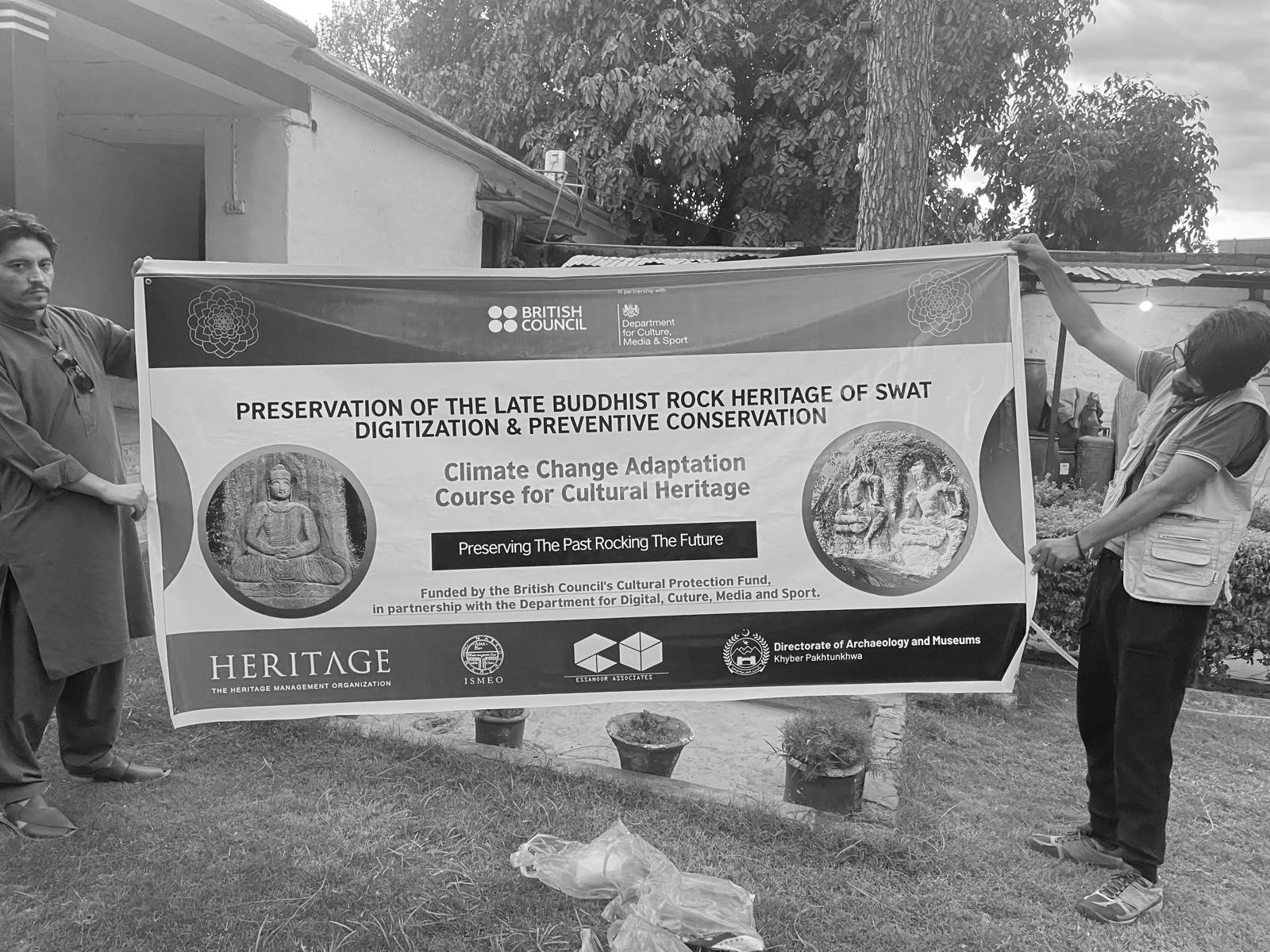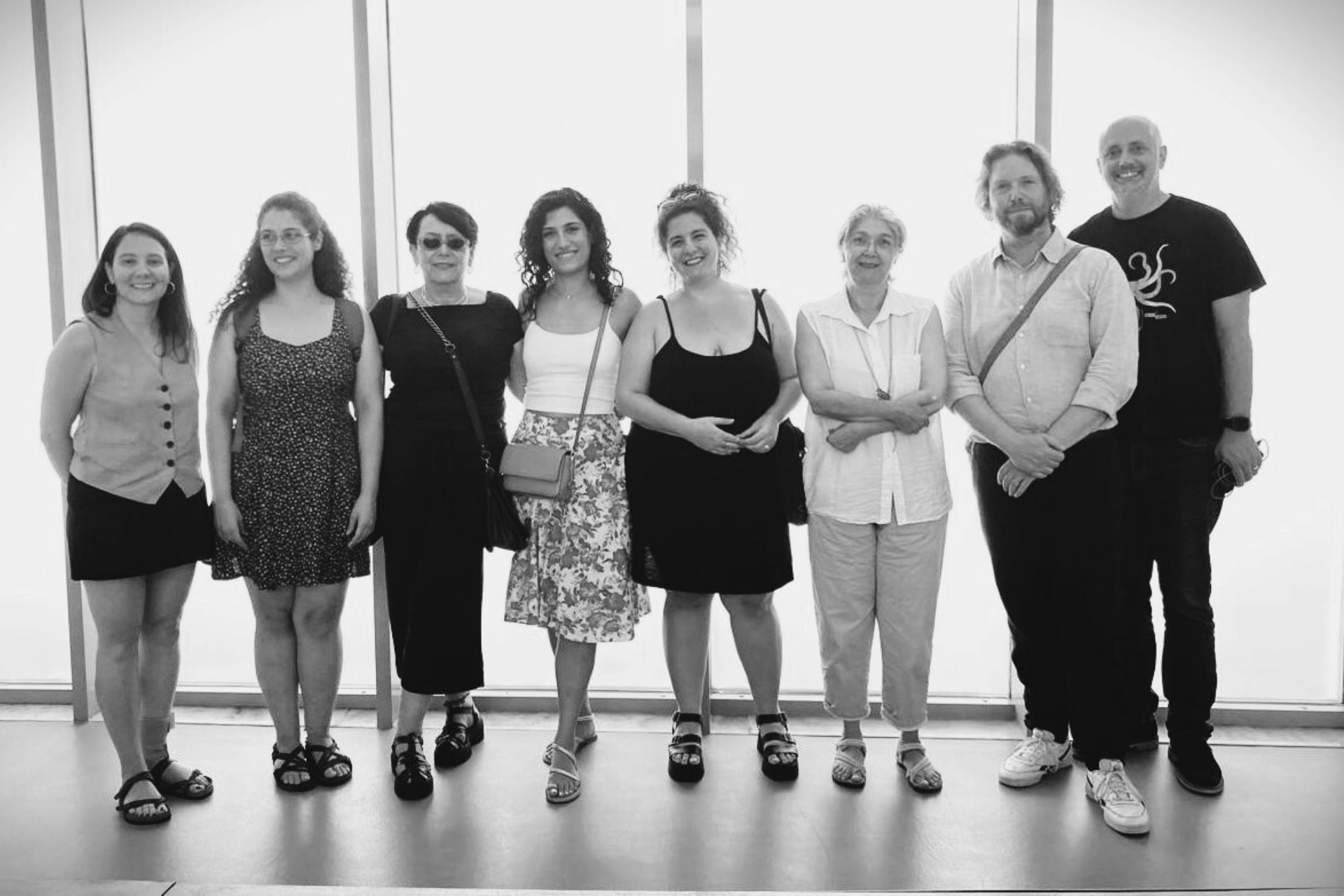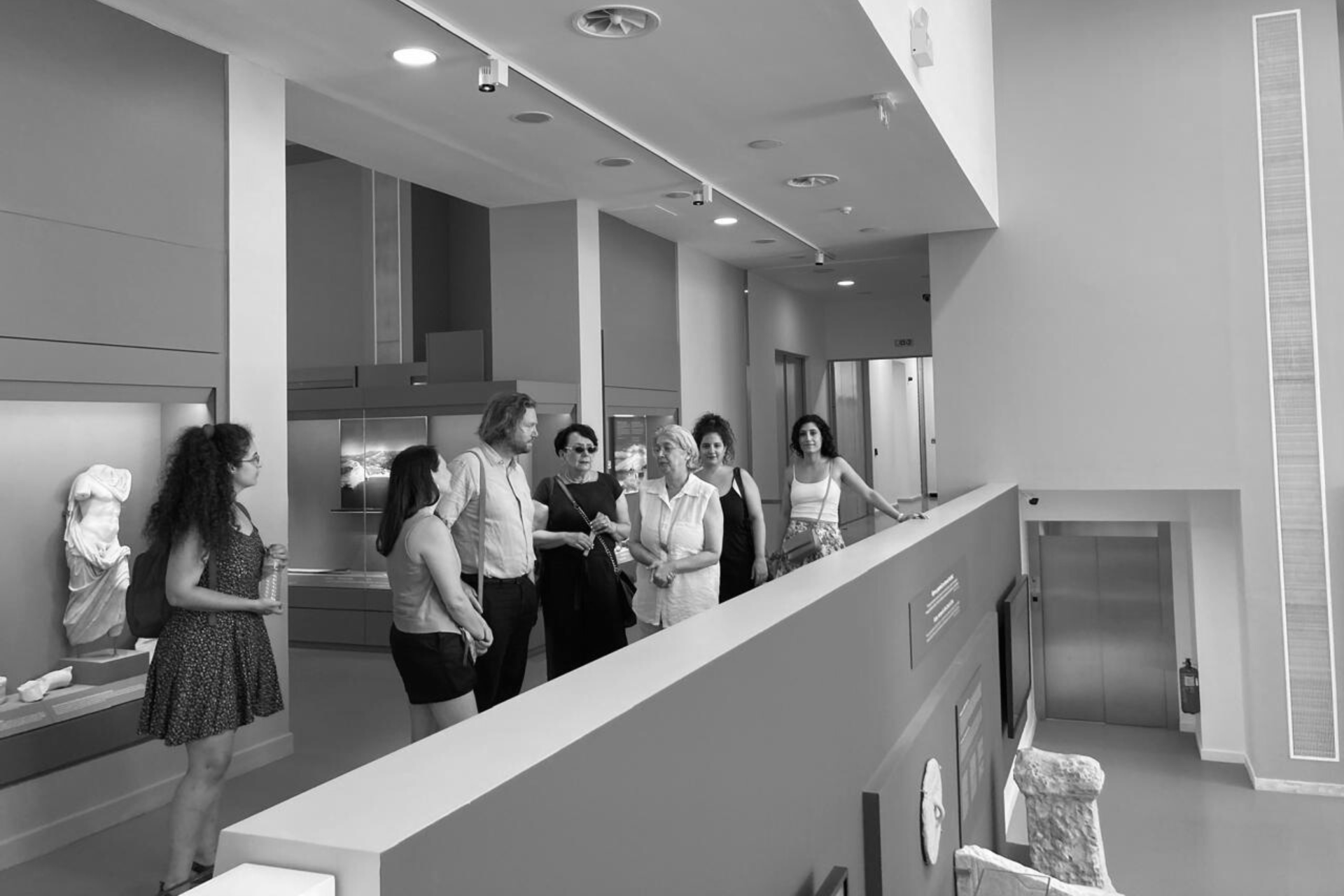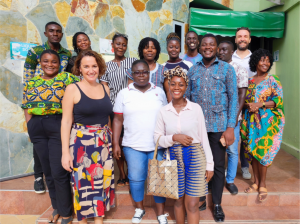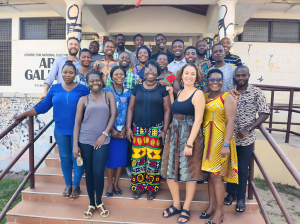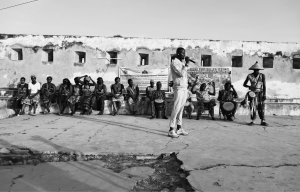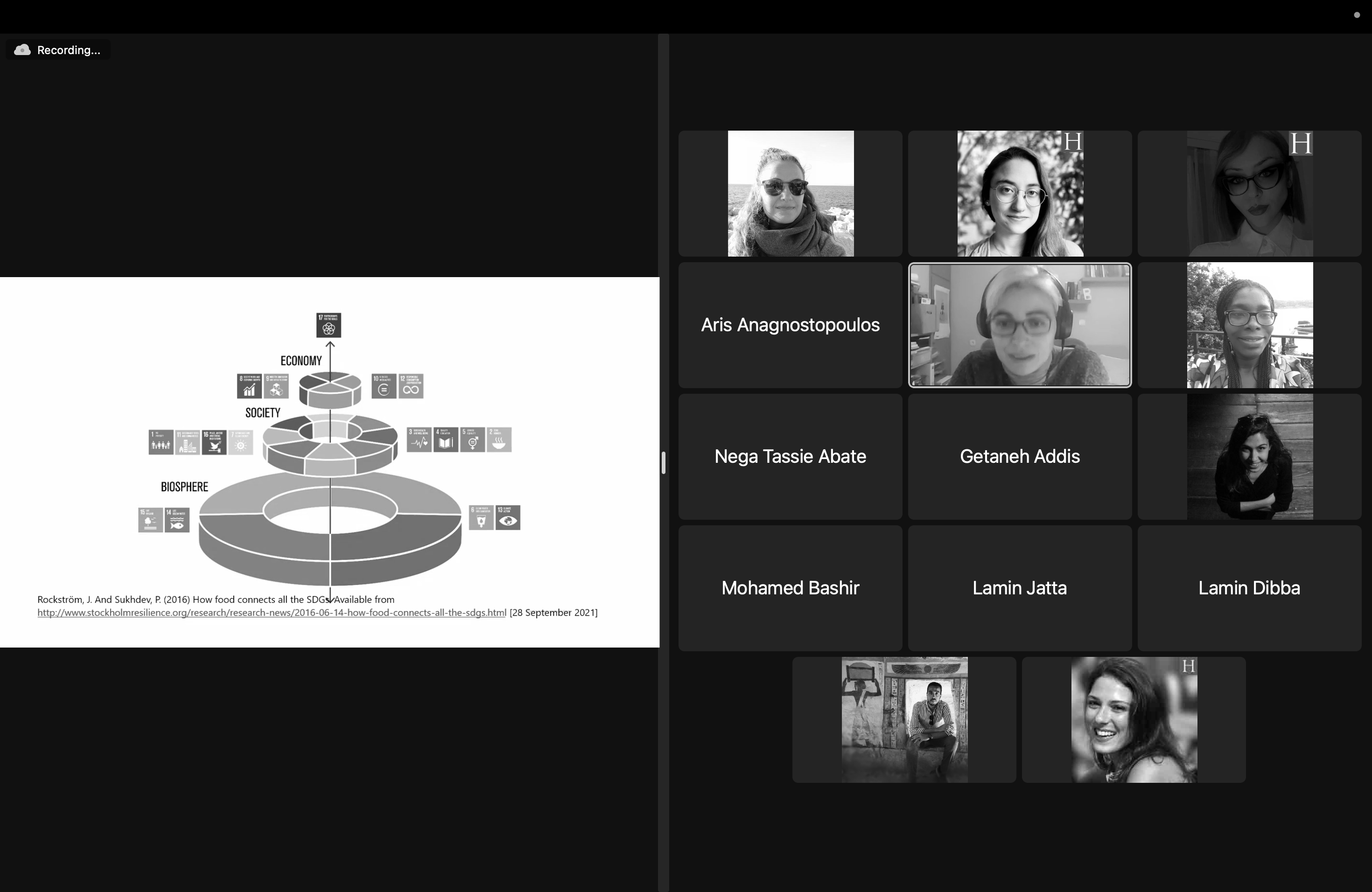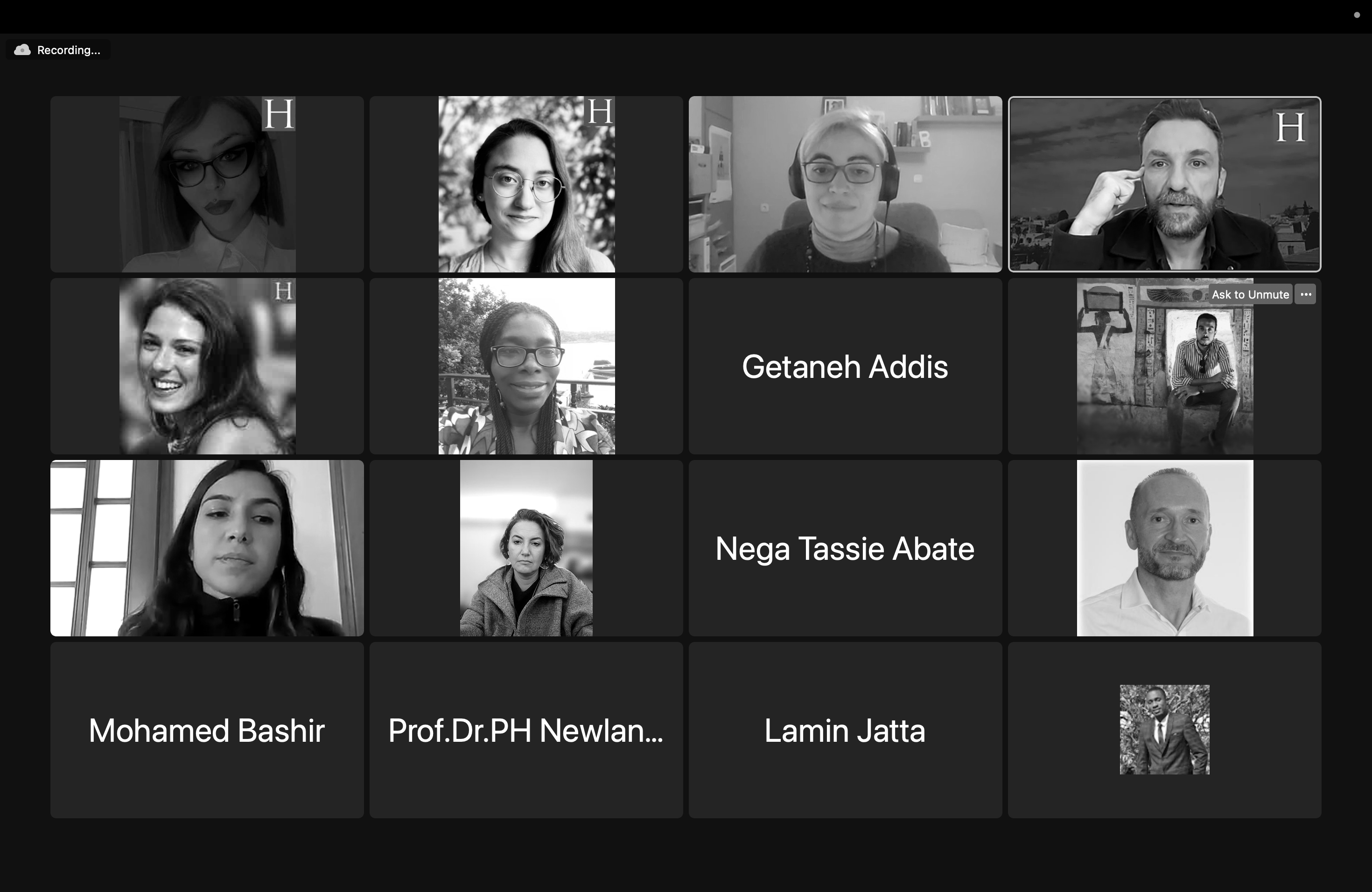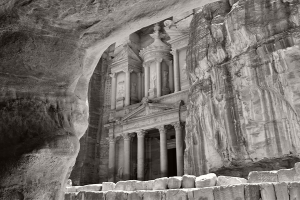: Uncategorized
New partnership to protect Buddhist heritage in Pakistan’s Swat Valley
HERITΛGE is delighted to partner with the , EssaNoor Associates and the International Association of Mediterranean and Oriental Studies(ISMEO), on the important project to protect the Buddhist heritage of the Swat Valley in Pakistan. We are grateful to the Cultural Protection Fund of the British Council, whose support made this work possible.
The Swat Valley, known both for its rich, multicultural history and natural beauty, was a vibrant center of Buddhism in late antiquity. In the early medieval period, from the 7th century onwards, the cultural flourishing came to an end, but the artistic expression continued in a less monumental, more intimate form of rock reliefs dispersed through the valleys. The reliefs representing Buddha and Bodhisattvas attest to the Gandharan heritage of the region, but also to a unique local artistic idiom.
The Buddhist rock reliefs of Swat, in the past threatened by the extremists, are now at risk from development and climate change. The difficulties are compounded by the growing detachment of local communities from this heritage. To address these complex issues, the project documents the rock art sites and provides training in documentation, climate change adaptation, and preventive conservation. It also implements first aid conservation, to address the most pressing issues. An important part of the project is recording intangible Pashtun traditions relating to the Buddhist reliefs. Protecting these traditions will help to rebuild the link between the community and the unique heritage of the Swat Valley.
“We work in partnership with local colleagues and local people. In helping them to develop knowledge and tools to address the impact of climate change on heritage, we hope to assist them in preserving these important sites into the future” – Dr. Maja Kominko, director of projects for the HERITΛGE Management Organization
Meeting for the AHEAD project in Crete
HERITΛGE is happy to announce that on July 9th, the Messara Archaeological Museum in Crete, Greece, hosted a pivotal meeting for the AHEAD project, attended by Vincent Roles, AHEAD’s EU Project Officer, officials from the Ephorate of Antiquities of Heraklion, local cultural heritage professionals, and members our AHEAD project team. The meeting marked a major step forward in AHEAD’s mission to enhance heritage accessibility and engagement across Europe.
“It was a very interesting day. The Messara Archaeological Museum opened its doors to present us its beautiful collections. The HERITΛGE team explained what they wanted to do and how it will benefit the museum and the local communities. I am excited to see how they will implement the results of the AHEAD project in Crete!” said Roles.
The EU official provided invaluable insights into the project and expressed his enthusiasm for the work being done. His participation underscored the EU’s support for the AHEAD initiative and reinforced the team’s commitment to making cultural heritage accessible to all.
During the meeting, HERITΛGE provided an update on the AHEAD project, showcasing the ongoing work at Messara Archaeological Museum, Altamira, and Ostia Antica and highlighting the successful completion of a series of AHEAD seminars that trained cultural heritage Professionals were trained in implementing the ACED methodology, focusing on various aspects of audience development. The seminar attendees for their part emphasized the importance of co-designing actions with target audiences to ensure greater engagement and relevance.
Participants also discussed the upcoming phases of the AHEAD project, including the study visits planned for next year and the collaborations with artists who will create works within the project framework.
Emphasis was placed on how the project’s outcomes will benefit local communities by promoting cultural heritage while considering the environmental impact of such actions.
Find out more about AHEAD and its work here.
Empowering Heritage Practitioners in Ghana: Insights from Workshops in Winneba and Accra
In December 2023, two landmark community engagement in cultural heritage workshops took place in Winneba and Accra, Ghana, bringing together dedicated heritage managers from various regions. These workshops, part of HERITΛGE’s HerMaP Africa program and supported by the Mellon Foundation’s Humanities in Place program, aimed to equip participants with the tools and insights to actively engage communities, navigate cultural complexities, and delve into the rich tapestry of oral history.
The Accra workshop began on Wednesday 6th December with interactive presentations to 22 attendees by Dr. Aris Anagnostopoulos, Dr. Lena Stefanou and HERITΛGE director, Dr. Evangelos Kyriakidis. On day two (Thursday 7th) attendees had the chance to explore heritage projects close to their hearts and present in small groups on how they might stimulate local engagement. The projects presented included the Mystic Ayi Tree, traditional Ghanian fabrics, oral storytelling traditions and the history of the famous priest Okonfo Anokye. The final day (Friday 8th) was dedicated exclusively to exploring oral history in heritage contexts. The theories and techniques of preserving oral history were presented to the participants and they were later asked to conduct mock interviews about one group member’s childhood. Following on from this, each group produced an interview report which would help guide them in future oral history research.
The following week the same workshop was conducted in Winneba from Monday 11th-Wednesday 13th December. Although this workshop involved fewer participants (up to 18 on the final day a broad range of heritage ideas and projects were explored. The group exercise, this time conducted on day 1, produced ideas about promoting tourism through sculptural monuments in Efutu region, promoting widow’s rights in the Deogo communities and a “reclaiming our roots” festival. The discussions were lively and raised some crucial ethical questions about how a heritage practitioner should involve his or herself in cultural practices. On day two we introduced a new “Who are your Communities” exercise in which participants identified and presented their community and its values. The final day, as in Accra, confronted oral history in heritage contexts. Once again it was very encouraging to hear such a diversity of approaches, questions and opinions and each group produced a helpful report to take away.
All in all, we are very excited about how the workshop went and look forward to the potential for future expansion into other areas of Ghana.
Bridging Heritage and Climate Action: New Workshop creates a generation of ambassadors
We are happy to announce the completion of our very first Interpreting Heritage and Engaging Communities for Climate Change workshop, an important milestone in the sector’s efforts to address this pressing issue.
During this exciting inaugural 3-day online workshop (1st– 3rd December) HERITΛGE bought together 13 Heritage Managers from Africa (Egypt, Eritrea, Ethiopia, Ghana, Nigeria, Sudan, Zimbabwe, The Gambia), Europe and Asia (France, Turkey) that are now trained to fulfil the role of heritage and climate action ambassadors.
The sessions aimed to equip the participants with the necessary tools and expertise to actively involve local communities in climate action. It was a pleasure to see participants share their personal experiences, lead lively discussions, and actively engage in various exercises throughout a series of thought-provoking lectures by our instructors.
Key Learnings:
- Understanding Climate Change: as both a global phenomenon and its specific effects on local communities.
- Impacts on Cultural Heritage Sites: the focal point of the workshop was the exploration of the intersection between climate and heritage issues.
- Community Engagement: learning effective strategies to communicate the impact of climate change to diverse audiences, with a strong focus on fostering sustainability and resilience in heritage sights.
Much of the success of the workshop was down to the guidance of our four instructors. Valya Stergitoti acted as our interpretative trainer and planner. She has over twenty years’ experience in organising heritage workshops, maintains a high level of personability and individual focus in each project she curates, and we benefited enormously from her guidance and skills. Dr Aris Anagnostopoulos, who is currently engaged in research about archaeological ethnography (PhD University of Kent) and serves as HERITΛGE’S Community Engagement Programs’ Manager, brought vital insights to the community engagement side of the workshop. Dr. Lena Stefanou, whose expertise lies in archaeology and museum and heritage studies, suggested a diverse perspective to the workshop. Her work incorporates museum planning, educational design and community archaeology and she provided fascinating insights into all these matters and how climate issues might impact them.
Finally, our director Dr. Evangelos Kyriakidis took the stage as the keynote speaker in a lecture which emphasised the urgent need for local ambassadors of climate mitigation in our world today.
By the end of the workshop, the participant Heritage Managers came out with a deeper awareness of how interpretation can inspire communities to take climate action. Armed with this knowledge and expertise, these ambassadors of heritage and climate action are now better equipped to initiate influential initiatives within their communities, contributing to a more sustainable future. We look forward to seeing how their future work will lead to positive change!
Europe Mapping: Survey
HERITΛGE is delighted to announce our inaugural survey aimed at mapping the training needs of European Heritage Managers.
This is your chance to actively influence the design of training workshops, summer schools, and academic certificates that we offer to heritage professionals. Your input will assist us in comprehensively understanding the capacity and requirements of the European Cultural Heritage Sector. Moreover, it will provide us with the necessary data to collaborate within our organization and with partners, governments, and international organizations to create more training opportunities that align with the skills you need and desire for effective cultural heritage management.
We are initiating a campaign to gather insights into the themes and topics that resonate with you, empowering us to develop future training courses that make a significant impact. Your participation, whether as an active or aspiring heritage professional, holds immense value.
Kindly take a few moments to fill out our survey and share your thoughts on how our training programs can assist you in overcoming challenges or adopting new working methods. The survey, designed to take no more than 10 minutes, will remain open for responses until December 31st.
We eagerly anticipate your contribution to our endeavors as we strive to best address the training needs of cultural heritage professionals in Europe.
Empowering heritage managers to transform visits into memorable experiences
We’re excited to share the highlights of our recent 3-day online workshop on “Heritage Interpretation for Site Managers”, which took place from 6 to 8 October 2023. Our workshop is designed to equip heritage managers with the skills to transform any visit into an unforgettable experience by crafting meaningful experiences for visitors.
This year’s transformative workshop brought together 16 passionate heritage managers from Africa (Cape Town, Egypt, Ethiopia, Ghana, Kenya, Namibia, South Sudan, Zimbabwe) and Asia (Iraq, Saudi Arabia) for a deep dive into the principles and practices of high-quality heritage interpretation.
Led by the experienced interpretive trainer and planner, Valya Stergioti, the workshop provided participants with a comprehensive understanding of key concepts in heritage interpretation, planning, and thematic development. Valya, with over 20 years of expertise in organizing interpretive workshops, guided participants through interactive exercises and assignments, fostering a dynamic learning environment.
The participants not only acquired the techniques of formulating themes for tangible and intangible heritage phenomena but also explored the importance of engaging local communities in the interpretation process. The workshop aimed not just to impart knowledge but to empower heritage managers to transform heritage phenomena into experiences. Participants left the workshop feeling equipped to address the diverse needs of visitors through interpretive media.
The workshop featured a guest lecture by Dr. Lena Stefanou, an archaeologist and manager of our programs in Ghana who specialises in museum and heritage studies. Dr. Stefanou shared valuable insights on the theory and practice of museum studies, museum education, and the management of cultural heritage. Her expertise extends to community archaeology and heritage programs, emphasizing the vital role of community engagement in preserving and promoting our shared heritage.
Looking Ahead: Follow-Up Tutorial and Continued Learning
To ensure ongoing support and development, participants had the opportunity to engage in a follow-up tutorial with Valya Stergioti on 16 October. This session gave participants the opportunity to seek advice, ask questions, and receive guidance on upgrading their final assignments. This commitment to continuous learning reflects our dedication to nurturing a community of skilled and passionate heritage managers. As we continue to empower professionals in the field, we look forward to witnessing the positive impact they will have on preserving and promoting our global heritage.

